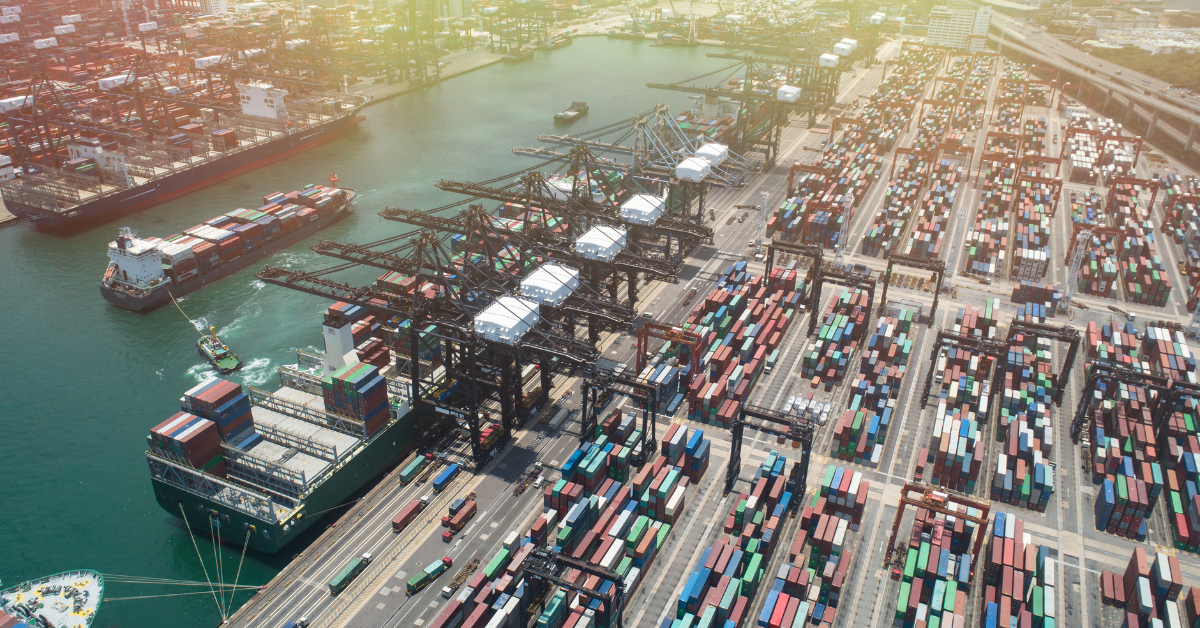The Current State of the Global Supply Chain
In the landscape of interconnected global commerce, supply chains serve as the lifeblood that sustains the movement of goods and services across countries. However, unprecedented challenges serve as a threat to these intricate networks, disrupting the very foundation of global trade and economic stability.
According to the Wall Street Journal, “Global supply chains are entering 2024 roiled by disruptions at two of the world’s crucial trade corridors—the Panama Canal and the Suez Canal,” causingtransportation bottlenecks.They go on to say that the current wars in “Ukraine and in the Middle East are threatening flows of grain, oil and consumer goods.” Additionally, resource scarcity, driven by factors like climate change and increased demand, can result in shortages of critical materials.
The interconnected nature of the global supply chain means that disruptions in one part of the world can have ripple effect on South African businesses.
The Impact on South African Businesses
Global supply chain disruptions have become a significant concern for businesses worldwide, and South Africa is no exception. SAPICS (The Professional Body for Supply Chain Management in Southern Africa) warns companies to expect a continuation of the “Great Supply Chain Disruption” that began in the wake of the COVID-19 pandemic. Key issues include:
- Potential Shortages: The immediate consequence of global disruptions is the possible scarcity of critical materials and components. South African businesses, relying heavily on imports for raw materials, face delays due to interruptions caused by geopolitical tensions, natural disasters, or unforeseen events.
- Price Increases: Global supply chain disruptions can also contribute to price increases for goods and services due to demand outstripping supply or when production costs rise due to scarcity.
- Production Delays: If a crucial component is delayed or unavailable, manufacturing processes can come to a standstill. This affects the ability to deliver products on time and increases lead times and backlogs.
General Strategies for Mitigating Risks
To navigate these challenges, RBS Risk Management specialists offer strategic recommendations for South African businesses:
- Reduce dependency on a single supplier or region by diversifying sources to minimise the impact of disruptions.
- Maintain higher stock levels for essential materials to cushion against shortages.
- Enhance visibility into the entire supply chain by adopting advanced monitoring tools. Real-time data allows for proactive decision-making and swift responses to emerging risks.
- Strengthening partnerships with key suppliers fosters collaboration and communication. In times of disruption, these relationships can be crucial for finding alternative solutions and maintaining the flow of goods.
- Establish contingency plans and include supply chain disruption in your business continuity plan.
Proactive Risk Management Approaches
Marine Cargo and Stock Throughput Policies
- If importing from a new supplier, ensure that the country you import from is not excluded from the marine policies.
- War cover, especially from Ukraine/Russia, is excluded, and some insurers are starting to exclude war cover for cargo shipments to and from the Indian Ocean, Gulf of Aden, Southern Red Sea, and associated airspace. If you have any shipments in this area, discuss with your broker if coverage can be arranged.
- If you started to import goods previously sourced locally, make sure the subject matter is listed on the marine policies and limits on the policy are adequate. In general, shipping costs are also increasing due to vessels rerouting via the Cape of Good Hope and must be considered regarding limits.
- Remember the exchange rate as most South African policies are in ZAR; however, goods are imported mainly in USD and EUR.
- If higher than normal stock levels are kept at premises, the stock values should be increased regarding Stock Throughput policies and/or assets policies.
- If importing from a new supplier, consider buying on Ex Works or FOB agreements to have control over the insurance and not rely on the seller to arrange the insurance.
Exclusions:
- Consequential losses or financial consequences are not covered in terms of marine policies. (e.g. loss of market/profits, wages, project delay, idle time, fines, etc).
- Overseas or local storage out of the ordinary course of transit unless expressly agreed with Insurers.
- Loss, damage, or expense caused by any delay, even due to the operation of a risk insured against following material damage.
- Excluding War Risks on Land
Rather than reacting to disruptions, businesses should adopt proactive risk management approaches. This involves continuously assessing potential risks, staying informed about global events, and adjusting strategies accordingly.
The evolving risk landscape of the global supply chain requires South African enterprises to take a proactive stance in managing disruptions. By implementing diversified strategies and embracing risk management practices, businesses can navigate the challenges of geopolitical tensions, resource scarcity, and transportation bottlenecks. In doing so, they safeguard their operations and position themselves for long-term success in an unpredictable world.

